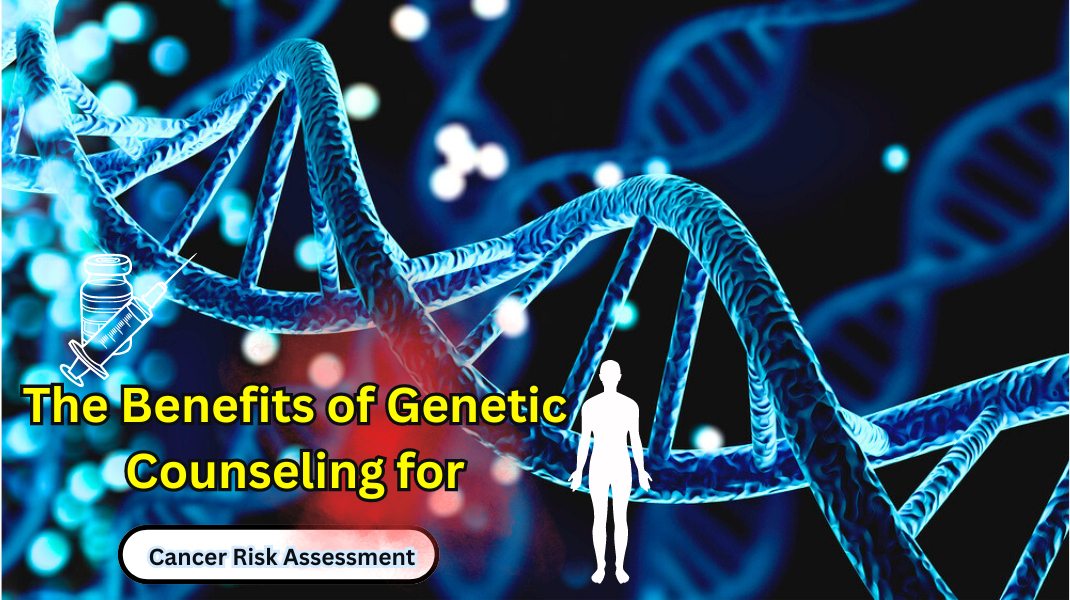BLOG
The Benefits of Genetic Counseling for Cancer Risk Assessment

In today’s world, where advancements in medical science are rapid and groundbreaking, genetic counseling has emerged as a crucial service, particularly in the realm of cancer risk assessment. Genetic counseling involves analyzing an individual’s genetic makeup to determine their risk of developing certain types of cancer. This process offers numerous benefits, not only for the individuals undergoing the counseling but also for their families. Let’s delve into the significant advantages of genetic counseling for cancer risk assessment.
Understanding Cancer Risk
Genetic counseling provides a clear understanding of an individual’s risk for developing cancer. Many cancers, including breast, ovarian, colorectal, and prostate cancers, can be influenced by genetic factors. By analyzing family history and conducting genetic tests, counselors can identify mutations in genes such as BRCA1, BRCA2, and others that significantly increase cancer risk. Knowing this information allows individuals to make informed decisions about their health and take proactive measures.
Personalized Prevention Strategies
One of the primary benefits of genetic counseling is the development of personalized prevention strategies. If a genetic mutation linked to cancer is detected, individuals can work with their healthcare providers to create a tailored plan to reduce their risk. This might include more frequent screenings, lifestyle modifications, or even preventive surgeries. For example, women with BRCA mutations may opt for more regular mammograms or prophylactic mastectomies to lower their risk of breast cancer.
Informed Decision-Making
Genetic counseling empowers individuals with the knowledge they need to make informed decisions about their health. For those at high risk of cancer, understanding their genetic predisposition can guide choices about family planning, career paths, and lifestyle changes. It also helps individuals weigh the pros and cons of various preventive measures and treatments, ensuring that their decisions align with their personal values and health goals.
Early Detection and Improved Outcomes
Early detection is critical in the successful treatment of cancer. Genetic counseling can lead to earlier and more frequent screenings for those at higher risk, increasing the chances of catching cancer in its early stages when it is most treatable. This proactive approach not only improves survival rates but also enhances the quality of life by minimizing the severity of treatment required.
Emotional and Psychological Support
The process of genetic counseling often includes comprehensive emotional and psychological support. Learning about one’s genetic risk for cancer can be overwhelming and anxiety-inducing. Genetic counselors are trained to provide empathetic support, helping individuals cope with the emotional impact of their results. They offer resources, counseling, and support groups to help manage stress and anxiety, ensuring that individuals do not feel alone in their journey.
Family Planning and Testing
Genetic counseling has significant implications for family planning. Individuals with known genetic mutations can make informed decisions about having children and consider options such as preimplantation genetic diagnosis (PGD) to prevent passing on harmful mutations. Additionally, family members can be tested to determine if they also carry the same genetic risks. Early awareness allows relatives to take preventive measures and undergo regular screenings, ultimately benefiting the entire family.
Contribution to Medical Research
By participating in genetic counseling and testing, individuals contribute to the broader field of medical research. Data collected from genetic tests can be used to enhance our understanding of cancer and its genetic components. This information is invaluable for developing new treatments, improving risk assessment models, and advancing personalized medicine. Individuals who undergo genetic counseling become part of a larger effort to combat cancer and improve public health.
Cost-Effectiveness
While the initial cost of genetic counseling and testing may seem high, it can lead to significant cost savings in the long run. Early detection and prevention of cancer reduce the need for expensive treatments and hospitalizations. By identifying high-risk individuals, healthcare systems can allocate resources more efficiently, focusing on preventive care and early intervention rather than costly late-stage treatments.
Ethical and Legal Considerations
Genetic counseling also addresses ethical and legal considerations related to genetic information. Counselors ensure that individuals understand the implications of their genetic data and their rights regarding privacy and discrimination. They provide guidance on how to protect their genetic information and make informed choices about sharing it with employers or insurance companies. This ethical framework ensures that individuals’ genetic data is used responsibly and with respect for their autonomy.
Conclusion
Genetic counseling for cancer risk assessment offers a multitude of benefits, from personalized prevention strategies and informed decision-making to emotional support and contributions to medical research. As we continue to unravel the complexities of genetics and cancer, the role of genetic counseling becomes increasingly vital. By empowering individuals with knowledge and support, genetic counseling helps pave the way for a healthier future, one informed decision at a time. If you have a family history of cancer or are concerned about your genetic risk, consider seeking genetic counseling to take proactive steps toward safeguarding your health.More

